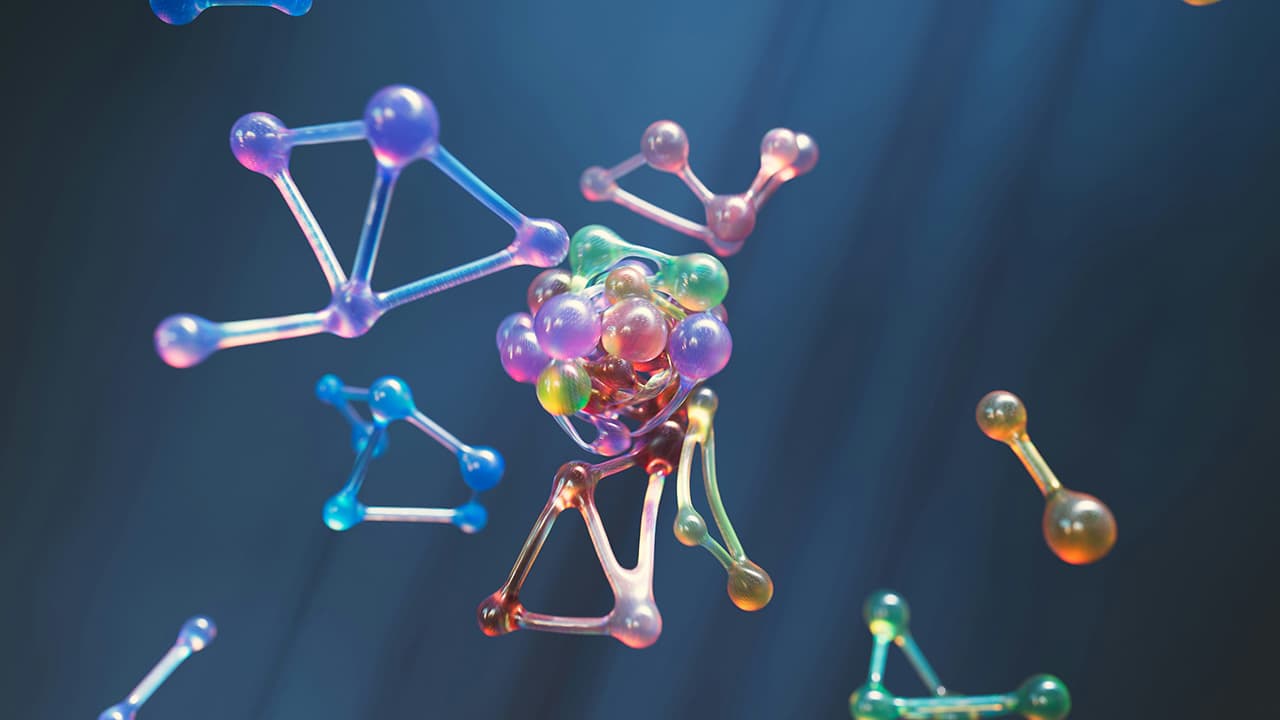Demis Hassabis Wins 2024 Nobel Prize for AI Breakthrough with AlphaFold
Demis Hassabis, co-founder and CEO of Google DeepMind, has been awarded the 2024 Nobel Prize in Chemistry, along with fellow researchers John Jumper and David Baker. The trio was recognized for their work on AlphaFold, a groundbreaking AI system that predicts the 3D structure of proteins with unprecedented accuracy. This AI-driven innovation has revolutionized the field of computational biology, enabling scientists around the world to solve complex problems related to drug discovery, enzyme design, and disease understanding at an accelerated pace. AlphaFold's impact has been profound, and this recognition by the Nobel Committee further underscores the transformative role of AI in scientific advancement.
Who is Demis Hassabis?
Demis Hassabis’s journey to winning the Nobel Prize is as diverse as it is extraordinary. Born in London to a Greek Cypriot father and a Singaporean-Chinese mother, Hassabis displayed an early talent for both creativity and intellect. As a child prodigy in chess, he competed at the master level before turning his attention to video game design. At the age of 17, Hassabis co-created the hit simulation game Theme Park, which became a global success. His fascination with the intersection of technology and human cognition led him to pursue a double first in computer science at Cambridge University, followed by a PhD in cognitive neuroscience from University College London. His academic background, combined with his creative instincts, set the stage for his future contributions to artificial intelligence.
In 2010, Hassabis co-founded DeepMind with a bold vision to push the boundaries of AI. The company quickly made headlines for developing AI systems capable of mastering complex tasks, such as defeating human champions in the ancient board game Go and excelling at real-time strategy games like StarCraft II. Google acquired DeepMind in 2014 for £400 million, integrating its cutting-edge AI research into broader projects while allowing the company to retain its focus on pushing AI to new scientific frontiers. Under Hassabis’s leadership, DeepMind has become a global leader in artificial intelligence research, with AlphaFold representing one of its most significant achievements.
How AI Transformed Protein Research
The prediction of protein structures has long been one of the most challenging problems in biology. Proteins are the workhorses of cells, responsible for nearly every function in the human body, from DNA replication to immune responses. Understanding their structure is critical for unlocking the secrets of diseases, developing new treatments, and engineering enzymes with novel functions. However, determining the 3D structure of a protein from its amino acid sequence was traditionally a slow and expensive process, often requiring years of laboratory work using techniques like X-ray crystallography or cryo-electron microscopy.
AlphaFold changed all that. Leveraging advances in machine learning, the AI system can predict the structure of a protein based on its amino acid sequence in a matter of hours. This represents a massive leap forward, reducing what was once an intractable scientific problem into a much faster and more accessible task. The success of AlphaFold lies in its ability to learn from vast amounts of data, recognizing patterns and relationships between sequences and structures that humans could not easily discern. With the launch of the AlphaFold Protein Structure Database, the system's predictions have been made freely available to researchers around the world, democratizing access to this critical tool.
As a result, more than two million researchers from 190 countries have utilized AlphaFold in their work, applying it to diverse areas of science. The ability to predict protein structures accurately has already led to new insights in drug discovery, where understanding protein interactions is key to developing new medicines. Similarly, researchers in biotechnology are using AlphaFold to design new enzymes that could be used for everything from breaking down plastic waste to creating sustainable biofuels.
The Role of AI in Scientific Breakthroughs
Artificial intelligence has long been heralded as a game-changer in various industries, but its application to scientific research is now coming into full focus. AlphaFold serves as a powerful example of how AI can accelerate scientific discovery. Unlike traditional methods that rely on hypothesis-driven experimentation, AI systems like AlphaFold can process vast datasets to identify patterns, make predictions, and uncover new insights that would take humans years to accomplish.
The Nobel Prize awarded to Hassabis, Jumper, and Baker in 2024 is not just recognition of AlphaFold itself, but of the broader potential of AI in scientific research. By speeding up the process of protein structure determination, AlphaFold has made it possible for scientists to focus their energy on the next stage of research, whether that be identifying potential drug targets or developing novel treatments for diseases. In the words of Hassabis, “AI is a multiplier for human ingenuity,” enabling scientists to go beyond their traditional capabilities and make new discoveries faster than ever before.
The impact of AlphaFold is already evident across multiple disciplines. For instance, in the pharmaceutical industry, researchers are using AI-generated protein models to design drugs that specifically target certain proteins involved in diseases like cancer and Alzheimer’s. In the field of synthetic biology, scientists are using AlphaFold’s predictions to engineer proteins with new functions, potentially leading to breakthroughs in bioengineering and materials science. Even in areas like agriculture, understanding plant protein structures can lead to the development of more resilient crops that can withstand climate change.
AI at the Heart of Nobel Recognition
When the Royal Swedish Academy of Sciences announced the 2024 Nobel Prize in Chemistry, they highlighted the profound role that AI, particularly AlphaFold, has played in reshaping the landscape of scientific discovery. In his acceptance speech, Demis Hassabis expressed gratitude to the team that made AlphaFold possible, recognizing the collaborative nature of the achievement. He emphasized that AlphaFold is just one example of how AI can be used to tackle some of the biggest challenges in science.
Hassabis also pointed out that AlphaFold’s success is a testament to the power of AI to not only enhance human abilities but also to open up entirely new areas of research. By handling the immense complexity of protein structure prediction, AlphaFold has allowed scientists to focus on more advanced problems, accelerating the pace of discovery in fields ranging from medicine to environmental science.
For Hassabis, the Nobel Prize is a significant milestone in his career, but it also represents a turning point for the field of artificial intelligence. It demonstrates the tangible benefits AI can bring to scientific research and underscores the importance of continued investment in AI technologies that can solve real-world problems. As AI continues to evolve, its role in science will likely grow, leading to new discoveries and innovations that were once thought impossible.












